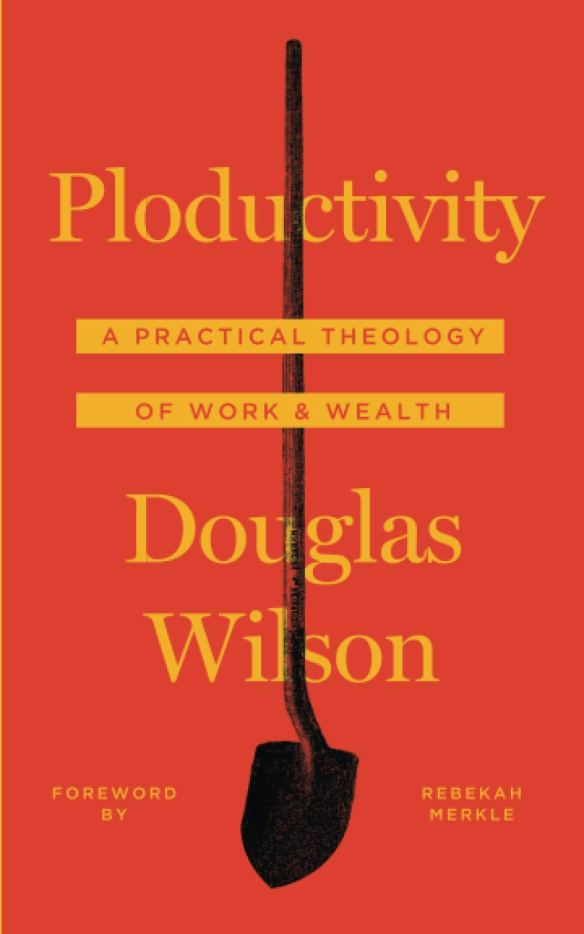
Right around the time I finished Quit Like a Millionaire, an acquaintance of mine posted about this book. Since my mind was already mulling over personal finance from the perspective of a believer, this title seemed like it may have something interesting to add. No, that’s not a typo; the book really is called Ploductivity, which I thought may hint at the author’s overall approach to work and wealth.
Firstly, I’ll be transparent and say that this book did not address the topics I hoped it would. I envisioned concrete instruction on how one ought to grow and handle resources from the Christian worldview. Other than a couple of passing references to growing wealth slowly over time, there wasn’t much to say about the topic. I will have to look elsewhere for that.
With that out of the way, I’m glad to share my thoughts on what the book did cover. Though I wasn’t familiar with Wilson, apparently he is a prolific author, well-known in certain circles. His main project here appears to be to discuss how Christians ought to live in the fast-paced age in which we find ourselves, which is a worthy question. He notes that almost everything man has devised since Eden is good, the outpouring of the “dominion” charge given to man in Genesis, and I tend to agree. The idea of Rousseau’s “noble savage,” seemingly popular in our age, is a Romantic notion not grounded in reality. In particular, however, the author is interested in the question of how believers should use the incredible technology at our disposal.
He points out that, indeed all of the powers at our fingertips are a form of wealth handed down to us through the ages. (He sounds this note quite a few times throughout.) We all know that the smartphone in our pockets provides us with more information than the largest library ever could. What responsibility comes with that? To the author, there is little distinction between money sitting in the bank and other resources we have access to, such as the Internet; the Lord expects us to steward all wealth wisely for His glory. From that viewpoint, it is wrong to assume that any advance is inherently bad, as some Christians have through the ages. Jesus and his friends rode around on boats, which are a form of technology. What we have today just looks a little different.
From this mindset, the author lays out some of his personal practices for making the most of what we’ve been given. He mentions filling spare moments with reading Kindle books on a phone, or carving out fifteen minutes each day to write a novel. None are bad ideas, though I’ve had mixed results with such efforts in my own life. He correctly points out that if you wait for the “right” moment to tackle important work, it will probably never come. At the same time, I cannot sit down and develop a useful app in such a short time each day. This gets at the “deep work” concepts I’ve read about before, but some efforts truly do take dedicated time to dig into and make progress. Depending on the type of work, the tactics the author mentions may be more or less effective, so give them a shot.
Overall, Wilson certainly has some good thoughts on the nature of work and wealth for followers of Jesus, though I ultimately found this work a little more high-level than I had hoped. In my twenties, I was much more interested in books abstractly exploring big ideas and themes. Now that I’ve largely settled on a framework through which I see the world, I tend to gravitate toward more practical and concrete non-fiction. For someone wrestling with the intersection of work, technology, and Christianity, Ploductivity could be quite beneficial. For my particular situation, I will reflect a bit on the weight of his analysis, then move on to more tangible instruction.




